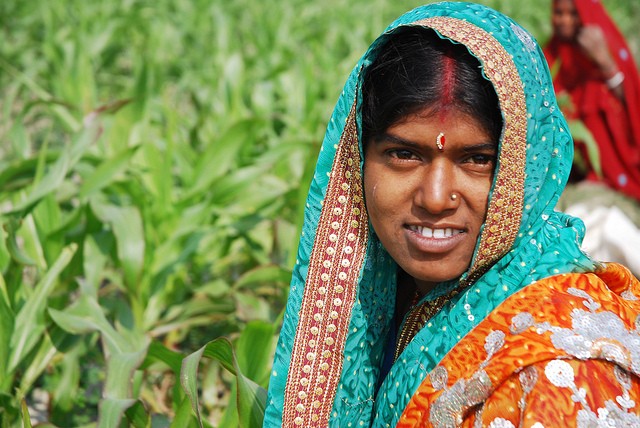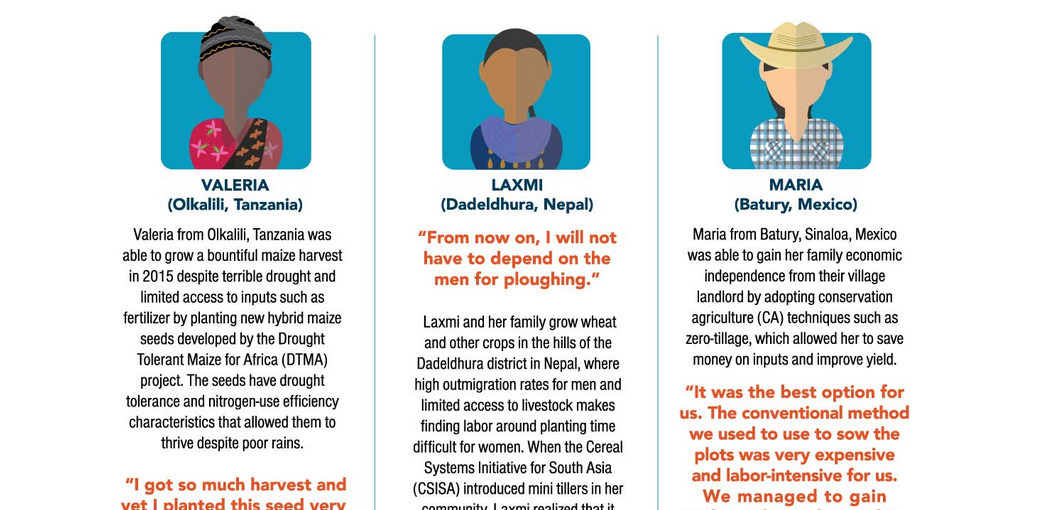
This opinion piece links to a seminar on “Cooperation of CGIARs and academia in sustainable gender + intensification in IAR4D” given at CIMMYT by Margreet van der Burg, Senior University Lecturer/Researcher at Wageningen University, on International Women’s Day, 8 March. Any opinions expressed are her own.
Agricultural change is part of historical change and cannot be separated from social change processes. Therefore, we have to commit to also include women and others who were largely overlooked in agriculture in the past. We cannot live without agricultural produce; we would all die without food. Changes in agriculture will affect us all in various ways and on different scales. It is all our very interest. For research on agricultural innovation this implies in my view that we need to be determined in addressing and carefully integrating human social change processes into it from step one till the very end.
Taking part in processes of change is taking part in development. My take on development is that we commit ourselves to consciously work together towards inclusive development, meaning optimizing opportunities for all while valuing diversity and acknowledging we are all part of these change processes, albeit not from the same social positions. Therefore, to me, development definitely includes the support to increasing opportunities and chances for groups of people who historically have been becoming largely invisible and not heard nor adequately represented.
In most societies, women’s opportunities and chances are more limited than men’s, even where equal rights laws are in place. Deeply rooted mindsets and bodily ingrained routines we have all been learning as young children, make us feel most comfortable when we can operate without having to question them. We often see this around us, especially when confronted with life-changing circumstances, such as sudden poverty, war, migration and climate change. We are poorly prepared to try alternative options, may get worn out and even lose our sense of purpose. It takes a conscious and concerted effort to question and modify those immediate responses.
But we can all learn much more from unfamiliar “others” than we often do now. Praising being outstanding through exclusivity or privilege in opposition to “others” does not support change processes; but sharing and facilitating do. If we all are prepared to see, listen and together investigate how and why “differences” based on gender and other social dimensions work out, we can combine insights and move forward in ways most can profit from. “Deviants,” for instance, can help to point out sharply where societies fail, and can lead to better diagnostics. “Others” who mostly have no vested interest in the status quo, can become important agents of change in processes where a lot of bridging is needed to negotiate change.
In many societies, women are predominantly defined as “others,” as opposed to men. If we support women in voicing their perspectives, this will shed new light on change processes from various angles and scales. Within the large group of women, there are also differences. Some women might be in a better position to act as change agents within the social dynamics at stake. In many societies, young women get exposure to “others” — for instance, through education — and can become change agen
ts if the elder community members and they themselves work on bridging differences in a respectful way. Men can stand up as allies and help bridging differences to their fellows. Integrating these gender — social dynamics of change into international agricultural Research for Development (IAR4D) will be a challenging task in the coming years for not only women’s, but everyone’s benefit. I am very pleased to have and take my share!

 Gender equality, youth and social inclusion
Gender equality, youth and social inclusion 
